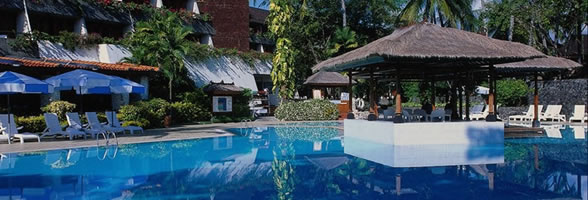
relax,rejuvenate and enjoy your Trip to Kenya
Ethopia to Kenya Overland tour
- COUNTRY:
- Ethiopia, Kenya
- DEPARTURES:
-
2012: 11 Jan, 1 Feb, 25 Feb, 7 Oct, 23 Nov, 14 Dec
2013: 4 Jan, 5 Jan, 25 Jan, 26 Jan, 16 Feb, 9 Mar, 30 Mar, 20 Apr, 28 Sep - PRICE:
- From £1005 (24 days) excludes local payment US $580. Local payment depends on departure
Ethiopia to Kenya overland tour
It's a challenging region to travel in, and overlanding provides the only real access to these isolated communities. We'll meet the Hamer, who practice bull jumping as an initiation rite, the Banna and the Arbore, whose lifestyles have changed little for centuries, and visit a fascinating Rastafarian project. Crossing southern Ethiopia we reach the Kenyan border, through semi-desert to Samburu National Park for some game viewing. The Samburu people live here, and we'll spend time learning about their culture before going on safari in Lake Nakuru, ending our trip in Nairobi.
Day-by-day itinerary
| Day 1-5: | Ethiopian Rift Valley & Mountains. Addis Ababa, the northern Rift Valley and Lake Langano. Visit to Lake Abiyata, and see the flamingos near Shashemene. Three nights in the wilds of Bale Mountains National Park for hiking or mule/horse trekking. Visit the Rastafarian community and educational project at Shashemene |
| Day 6-9: | Ethiopian Rift Valley. Overland through Ethiopia's Rift Valley along the shores of Lake Abaya. Two night stay at Arba Minch to explore the market or nearby Lake Chamo and its crocodiles |
| Day 10-14: | Southern Ethiopia. Visit to tribal region near Omo River, seeing Hamer, Banna and Dascench tribes. Overnight in Konzo, centre of the Konso people |
| Day 15-19: | Southern Ethiopia & Northern Kenya. Remote overland journey through the wilds and deserts of southern Ethiopia and northern Kenya. Wildlife safari in Samburu National Park: elephants, lions, Grevy's zebra and numerous other animals. Visit to Samburu tribal community and cultural project with local Samburu tribespeople |
| Day 20-24: | Kenyan Rift Valley. Safari in Lake Nakuru National Park, excellent for rhino. Visit to Elsamere Born Free foundation at Lake Naivasha. Relax and explore Nairobi, Kenya's capital city |
Typically you will be sharing your experiences with a group of between 5-20 like minded travellers and you'll have 2 group leaders with you at all times. In some areas you'll also be joined by a campmaster, as well as expert local guides along the way.
On an overland adventure you're more than just a passenger, you're part of the crew. Depending on the trip itinerary, your accommodation will be a mix of hotels or local guesthouses and camping - and everyone is expected to get involved and help with setting up camp, pitching tents, shopping for food and even cooking. There are also a number of other jobs that need doing, for example collecting water and firewood, luggage loading, organising food stores etc. These tasks may be assigned to particular people or on a rota system according to group size and make-up.
How this holiday makes a difference
Community
In the far south of Ethiopia lies the Omo Valley. We head down through this remote area for our tribal tour of the Omo Valley region. From here we will visit a combination of markets and small tribal settlements in the surrounding region. The markets that we will try to visit are Turmi, Dimeka and Arbore. During our time down here we will meet the peoples of the Hamer, Arbore and the Dascensch tribes. There are also other tribal groupings throughout the area and our guide will point out the different tribes and their customs. Life is distinctly tribal throughout the region, with few modern amenities. We are committed to ensuring that we have a positive impact on the local communities we travel through and believe that local culture and communities must be an integral part of our trips. We recognise that we are guests of the local communities we travel through and strive to make these communities into our partners.
Environment
We are dedicated to minimising the effects our trips have on the environment, and are committed to trying to reduce, re-use and recycle as much as is possible, both out on the road and back in our offices in the UK. All our trips follow our strict environmental guidelines that encourage the respect of natural resources, waste minimisation and recycling wherever possible. For example, all our overland vehicles carry a 350 litre water tank, providing drinking water for the group and minimising the need to purchase bottled water. Rather than using plastic bags when shopping for food, we also provide reusable longer lasting bags.
On the road conservation: For cooking we generally use gas instead of wood, a cleaner fuel and leaves natural resources for local people. Local fuel sources are used but they must be from plentiful resources and not where it would encourage local people to squander resources or compete with local peoples need for precious supplies. All our overland trucks conform to UK emission controls when they leave the UK. All our overland trucks are regularly serviced and maintained ensuring that trucks run as efficiently as possible. Passengers and crew are encouraged to use rechargeable batteries for items such as cameras, personal music systems etc. These can be charged from mains supplies or on our trucks as we travel.
